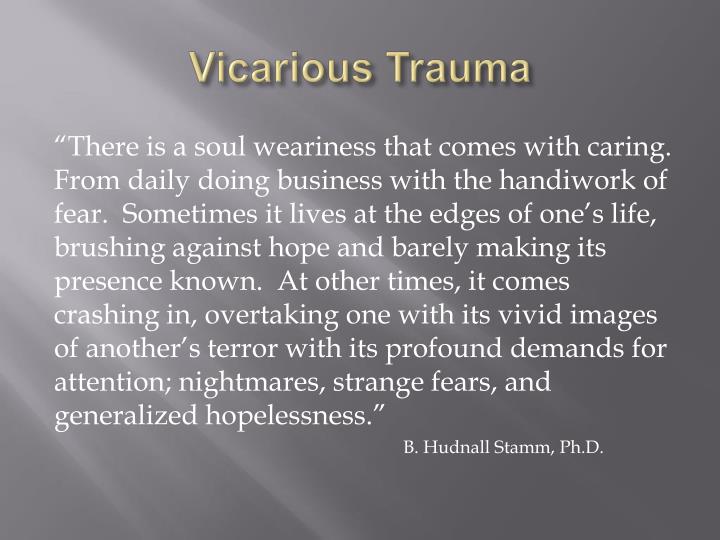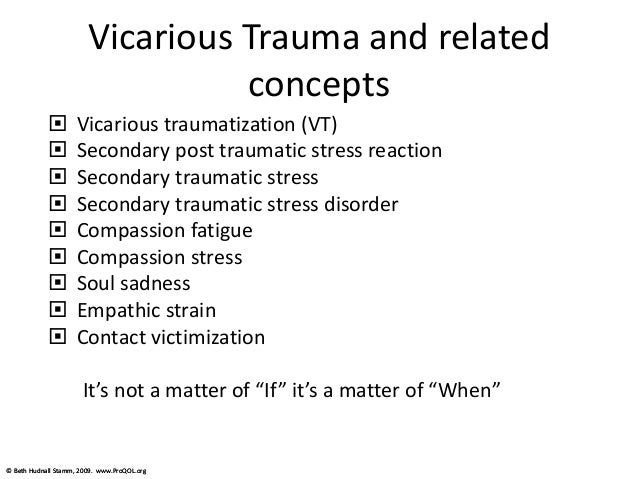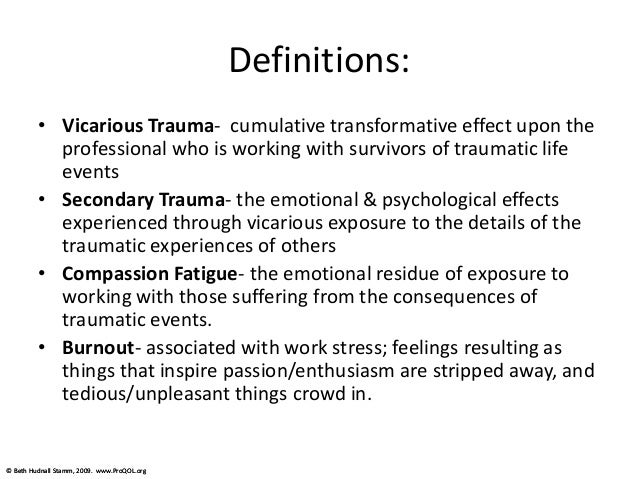

You might feel less satisfied with your job or even feel trapped by it.Īfter vicarious trauma, you may have physical symptoms like ulcers, heartburn, headaches, exhaustion, or even rashes. You may lose your sense of humor and your joy for things you once loved. You may feel unsafe in surroundings where you usually feel comfortable. Some of them are emotional symptoms, such as anxiety, grief, irritability, distractibility, anger and mood changes. People with vicarious trauma may show various symptoms. It says you do 'feel their pain.' Most of all, it means that you're a loving, caring human who looks beyond self to see the suffering of others just so that you can help them. If you have vicarious trauma, it means you care what happens to the person who's experienced the trauma. The only problem is that they've failed to create a boundary that keeps the feelings of the person they're helping separate from their own. In short, people who experience vicarious trauma have succeeded in establishing that connection. It enables you to understand how they're thinking and feeling so you can help them more effectively. It refers to the 'emotional reaction of the analyst to the subject's contribution,' according to Google Dictionary.Ĭountertransference can be extremely helpful as you go about helping someone. Countertransference is a relevant psychological term for this. If you're a helper by trade, experiencing vicarious trauma means you have connected deeply with one or more clients or people you're helping.


'Trauma is 'exposure to actual or threatened death, serious injury, or sexual violence in one (or more) of the following ways: directly experiencing the traumatic event(s) witnessing, in person, the traumatic event(s) as it occurred to others.
Vicarious trauma manual#
The definition of trauma in the DSM-5, the diagnostic manual used in the psychological/psychiatric professions, broadens this definition, which includes a description of vicarious trauma.

Trauma is somewhat subjective, in that what causes on person distress may not faze someone else. The first is the layman's definition of trauma, found in the Google Dictionary, is 'a deeply distressing or disturbing experience' or 'the emotional shock following a stressful event or physical injury.' There are two primary definitions of trauma. Before you can understand what vicarious trauma is, you need to know precisely how trauma is defined.


 0 kommentar(er)
0 kommentar(er)
